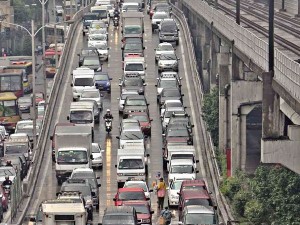The Commission on Audit (COA) has uncovered irregularities in the use of more than P1.66 billion in funds of the Road Board, the agency created by law to spend the billions of pesos in Motor Vehicle User’s Charge (MVUC) or the so-called road user’s tax collected by the Land Transportation Office from vehicle owners.
In its 2013 audit of the Road Board, the COA found that the board spent P319 million in various infrastructure projects nationwide which violated provisions of Republic Act No. 9184, otherwise known as the Government Procurement Reform Act.
“Various activities in the procurement of infrastructure projects and goods… were not compliant with the provisions of RA No. 9184 and its Implementing Rules and Regulations (IRR),” the COA said.
According to COA, the non-compliance made it difficult to achieve transparency, efficiency and economy in the procurement process as mandated by law.
“The procurement process shall be simple and made adaptable to advance modern technology in order to ensure an effective and efficient method,” the COA said.
Among the suspicious transactions that the COA uncovered was the payment of the performance security bond of a private contractor for a P62-million project in the National Capital Region even before the firm was given a notice of award.
Under the law, COA said winning bidders were required to settle the performance security bond 10 days after receiving the notice of award from the procuring government agency.
“The posting of performance security (bond) ahead of the notice of award gives the impression that the contractor had known that (it) would be awarded the contract which connotes communication between the members of the BAC (bids and awards committee) and the contractor during evaluation process,” the COA said.
The COA said four other infrastructure projects of the board in Metro Manila amounting to P104 million did not include the value-added tax (VAT) computation in their bids as required by law.
It said the Road Board’s technical working group (TWG) and BAC accepted the bids “from lowest to highest without taking into account the VAT component.”
“There was no assurance that the lowest calculated bids was properly determined due to the lapses made by the TWG and BAC in the review and evaluation of the bid documents submitted by the bidders,” it said.
In addition, the COA said disbursements of several officials of the Department of Pubic Works and Highways worth P276 million were not covered by appropriate documents to “establish propriety, validity and legality of the transactions.”
“As a result of the absence of complete/proper supporting documents, the propriety and validity of the… transactions are doubtful,” the COA said.


